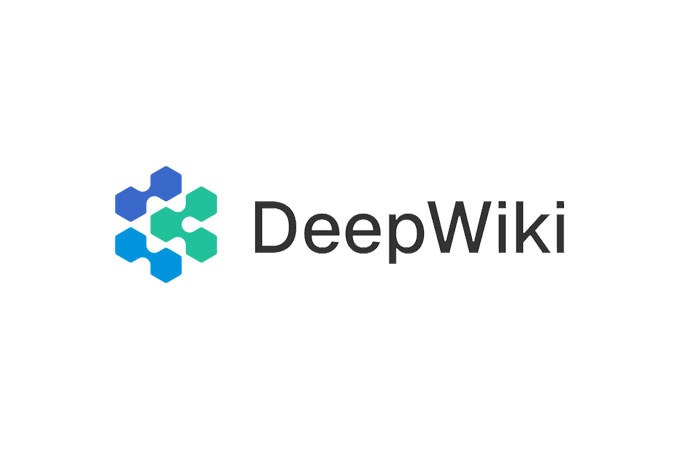Imagine diving into a GitHub repository and instantly grasping its purpose, structure, and intricacies—no more slogging through sparse READMEs or puzzling over undocumented code. That’s the promise of DeepWiki, a groundbreaking platform launched by Cognition AI on April 25, 2025. By transforming any public GitHub repository into an interactive, Wikipedia-style knowledge hub, DeepWiki is making open-source code more accessible than ever. Powered by Devin, Cognition’s AI coding assistant, it has already indexed 30,000 repositories, analyzed over 4 billion lines of code, and racked up a $300,000 compute bill to do so. Here’s why DeepWiki is a game-changer for developers, educators, and open-source enthusiasts, plus a step-by-step guide to using it.
A New Way to Navigate Code
GitHub is a treasure trove of open-source projects, but understanding a repository’s codebase can feel like decoding an ancient script. Documentation is often incomplete, and comments are cryptic or nonexistent. DeepWiki changes that by leveraging advanced large language models (LLMs) to analyze code, READMEs, and configuration files. The result? A polished, wiki-style page complete with structured documentation, interactive diagrams, and a conversational AI assistant ready to answer your questions in plain English.
The platform’s scale is staggering. With 30,000 repositories indexed and 4 billion lines of code processed, DeepWiki covers a vast array of programming languages and tech stacks, from JavaScript and Python to Go and Rust. This isn’t just a tool—it’s a movement to make open-source code more approachable, encouraging contributions from developers of all skill levels and empowering educators to use real-world projects in the classroom.
How DeepWiki Works
DeepWiki’s magic lies in its technical backbone. Built on Devin’s DeepResearch agent, it combines AI-driven code parsing with natural language processing. When you access a repository through DeepWiki, the platform scans its files, extracts key information, and generates a comprehensive knowledge base. This includes:
- Structured Documentation: Detailed breakdowns of the codebase’s functionality, architecture, and usage.
- Interactive Visuals: Flowcharts and dependency graphs that map out how modules and services interact.
- Conversational AI: A chatbot that answers questions like “How is authentication handled?” or “What does this function do?” with context-aware responses.
For advanced users, DeepWiki’s “Deep Research” mode dives deeper, identifying potential bugs, suggesting optimizations, and even comparing the repository to similar projects. It’s like having a senior engineer by your side, minus the coffee runs.
The platform’s free access to public repositories—no login required—sets it apart. For private repositories, a Devin account and subscription (pricing TBD) unlock the same features, making it a versatile tool for enterprise teams and solo developers alike.
Why It Matters
DeepWiki is more than a convenience; it’s a catalyst for the open-source ecosystem. By automating documentation, it frees maintainers to focus on innovation rather than writing manuals. For newcomers, it lowers the barrier to contributing, turning daunting codebases into manageable learning opportunities. Educators can use DeepWiki to teach with real-world examples, while job seekers can quickly master a company’s tech stack for interviews.
The developer community is buzzing. Posts on X praise DeepWiki’s accuracy and ease, with users calling it “a Wikipedia for code” and a “game-changer for exploring repos.” One developer noted how it transformed their workflow, saving hours on a legacy codebase, while another highlighted its potential to complement tools like GitHub Copilot.
Cognition AI’s $300,000 investment in compute power underscores their commitment. As DeepWiki grows, plans include indexing more repositories, optimizing documentation quality, and adding support for GitHub Issues and Pull Requests. There’s even talk of a “code knowledge market” with shared templates and custom AI assistants, akin to Hugging Face’s model ecosystem.
How to Use DeepWiki: A Step-by-Step Guide
Getting started with DeepWiki is as simple as swapping a URL. Here’s how to explore its features for public repositories, plus tips for private ones.
Option 1: Explore Public Repositories
- Visit DeepWiki: Go to the DeepWiki website to browse popular repositories like microsoft/vscode or vuejs/vue. The homepage lists trending projects with brief descriptions and star counts.
- Search or Swap URL:
- Search: Enter a repository name (e.g., “langchain-ai/langchain”) in the search bar and select it.
- URL Swap: Take a GitHub URL (e.g., github.com/owner/repo) and replace “github” with “deepwiki” (deepwiki.com/owner/repo). Hit enter to load the wiki.
- Explore the Wiki: The generated page includes documentation, interactive diagrams, and a chatbot. Click through sections to understand the project’s structure or view dependency graphs.
- Ask Questions: Use the conversational AI to query the codebase. Try specific questions like “How does this project handle routing?” for precise answers.
- Request Indexing: If a repository isn’t indexed, submit it via DeepWiki’s form. Indexing typically takes a few minutes.
Option 2: Access Private Repositories
- Sign Up for Devin: Create an account on the DeepWiki platform to access private repository features. A subscription is required (pricing details pending).
- Submit Your Repo: Authenticate with GitHub to allow DeepWiki to index your private repository securely.
- Use as Above: Once indexed, access the wiki using the same URL-swap method and explore the same interactive features.
Pro Tips
- Start with Visuals: Use diagrams to quickly grasp complex architectures.
- Ask Precise Questions: The AI excels with targeted queries over vague ones.
- Verify Critical Info: Cross-check AI-generated documentation with the codebase for critical tasks.
- Explore the Directory: Use DeepWiki’s directory to discover repositories by language or popularity.
- Share Insights: Share wiki pages or chatbot answers with colleagues via direct links.
The Future of Code Exploration
DeepWiki is redefining how we interact with GitHub. Its AI-driven approach tackles a universal pain point—understanding complex codebases—while fostering collaboration and learning. With 30,000 repositories already under its belt and a passionate community cheering it on, DeepWiki is poised to become an essential tool for the global developer ecosystem.
Whether you’re a coder, teacher, or curious learner, DeepWiki invites you to explore the world’s code like never before. Swap that GitHub URL, ask a question, and let Devin guide you through the code jungle. The encyclopedia of GitHub is open—and it’s free.

